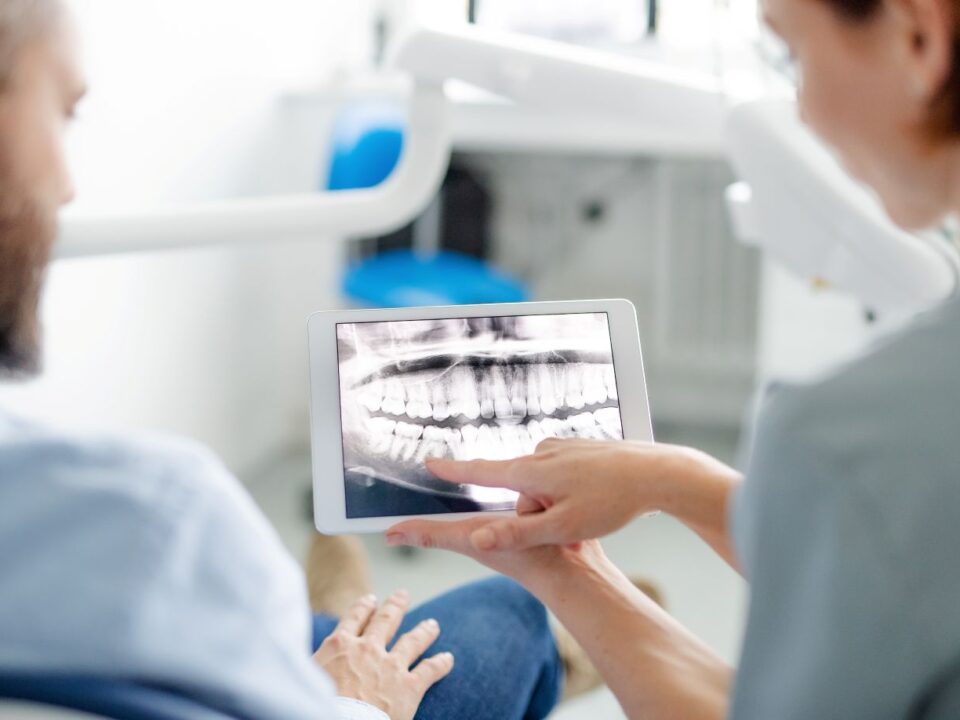Exploring dental sleep solutions
Sleep is one of the most vital components of overall health. Yet, for millions of people, restful sleep is constantly disrupted by a common but serious disorder: sleep apnea. While it’s often associated with loud snoring or bulky CPAP machines, there’s a lesser-known but increasingly effective approach to managing this condition: dental sleep solutions. Dentists are now at the forefront of diagnosing and treating sleep apnea, offering patients non-invasive, comfortable, and life-changing therapies.
In this post, we’ll explore how dentistry can play a transformative role in improving sleep health, the science behind sleep apnea, and the benefits of modern oral appliance therapy.
Exploring Sleep Apnea
Sleep apnea is more than just a nighttime nuisance: it’s a chronic medical condition that can have serious consequences for your health. The word “apnea” literally means “without breath.” People with sleep apnea experience repeated interruptions in breathing during sleep, sometimes hundreds of times a night, often without realizing it.
Sleep apnea often goes undiagnosed because the interruptions in breathing happen while you’re asleep. However, there are clear red flags that shouldn’t be ignored:
- Loud, chronic snoring
- Pauses in breathing followed by gasping or choking
- Restless sleep or frequent awakenings
- Daytime fatigue or difficulty staying awake
- Morning headaches
- Dry mouth or sore throat upon waking
- Difficulty concentrating or memory problems
- Mood swings, irritability, or depression
If these symptoms sound familiar, it’s important to seek professional evaluation. Sleep apnea not only affects your rest – it impacts your cardiovascular health, metabolism, and quality of life.
The Connection Between Sleep and Oral Health
You may not immediately think of your dentist when considering treatment for a sleep disorder, but the mouth and airway play a central role in breathing. Dentists are uniquely positioned to identify the oral and structural causes of airway obstruction.
During a dental exam, your dentist can observe anatomical features that increase your risk of sleep apnea, such as:
- A narrow airway or small jaw
- A large tongue or tonsils
- A high-arched palate
- Evidence of teeth grinding (bruxism), which is often linked to disrupted sleep
Since dentists often see patients more regularly than primary care physicians, they can be the first line of defense in recognizing signs of undiagnosed sleep apnea.
The Role of Dentistry in Treating Sleep Apnea
Once a patient is diagnosed, dental professionals can offer effective treatment options, particularly for those with mild to moderate obstructive sleep apnea or those who cannot tolerate CPAP (Continuous Positive Airway Pressure) therapy.
Oral Appliance Therapy is one of the most significant advancements in dental sleep medicine. These custom-made devices, similar to mouthguards, are worn during sleep to help keep the airway open.
The result is a more stable airway, quieter nights, and more restful sleep, often without the noise or discomfort of a CPAP machine.
Benefits of Dental Sleep Solutions
Dental sleep appliances are gaining popularity for good reason. They combine comfort, convenience, and effectiveness, offering numerous benefits:
- Comfortable and Silent: Unlike CPAP machines that require a mask, tubing, and air pressure, oral appliances are lightweight, silent, and easy to wear. Many patients find them more tolerable, which means better compliance – and better results.
- Portable and Easy to Maintain: These compact devices are easy to clean and travel with, making them ideal for patients who are frequently on the go.
- Clinically Proven Effectiveness: Research shows that oral appliance therapy reduces snoring and improves oxygen levels during sleep in patients with mild to moderate OSA. Many patients report improved energy, sharper focus, and better mood after switching to a dental solution.
- Affordable and Accessible: Compared to surgical options or long-term CPAP maintenance, dental sleep appliances are often more cost-effective. They may also be covered by medical insurance rather than dental insurance, depending on the diagnosis and provider.
- Improved Overall Health: Quality sleep affects nearly every aspect of health, from immune function to emotional stability. Treating sleep apnea reduces the risk of heart disease, high blood pressure, diabetes, stroke, and obesity.
Take the First Step Towards Better Sleep
If you or a loved one suffers from snoring, daytime fatigue, or other signs of sleep apnea, don’t wait to seek help. At our North Carolina dental practice, we specialize in dental sleep solutions designed to help you breathe easier, sleep deeper, and live healthier.
We’re committed to providing compassionate, comprehensive care that integrates your dental and sleep health needs. From initial consultation to long-term management, our team is here to support you every step of the way.




